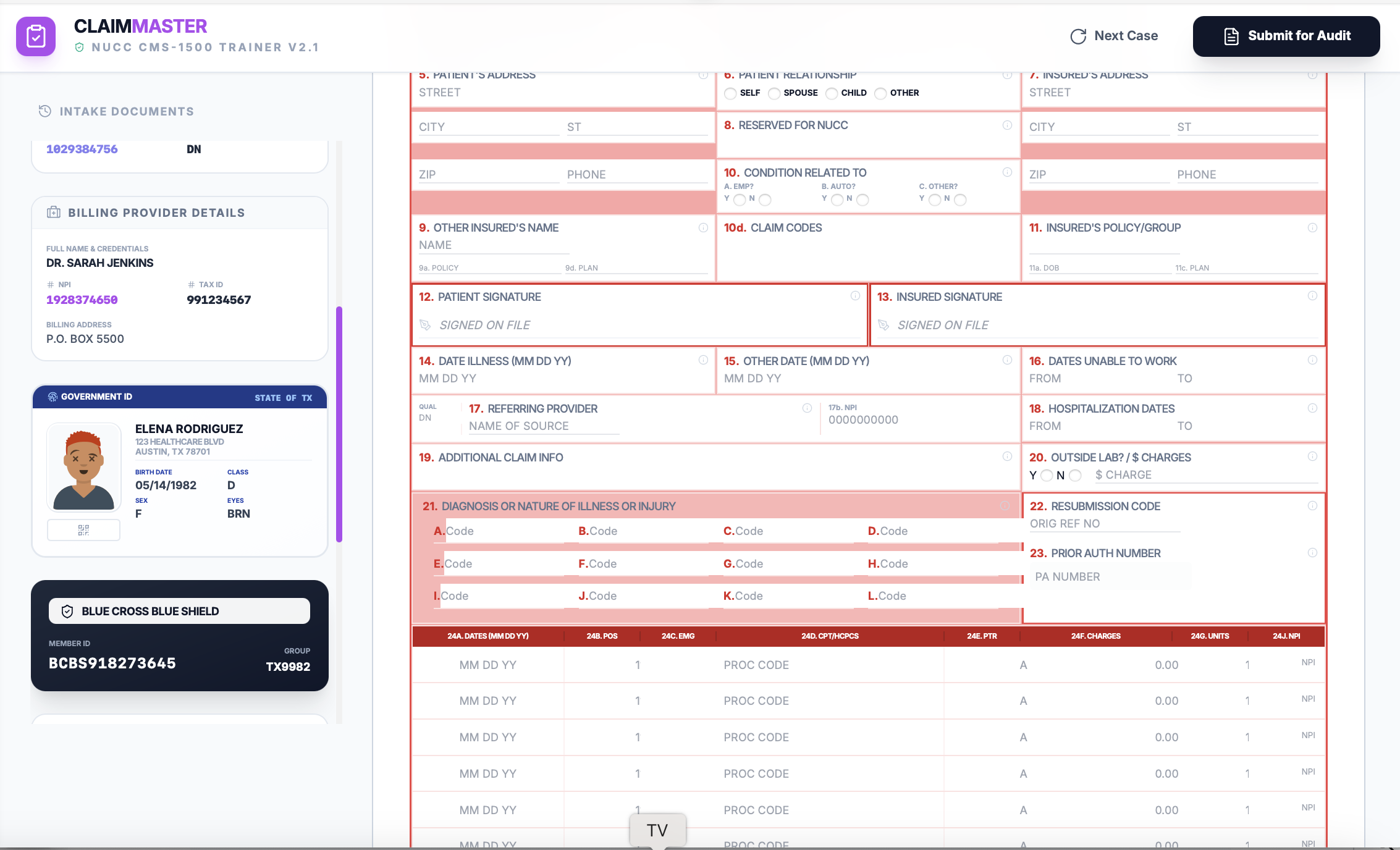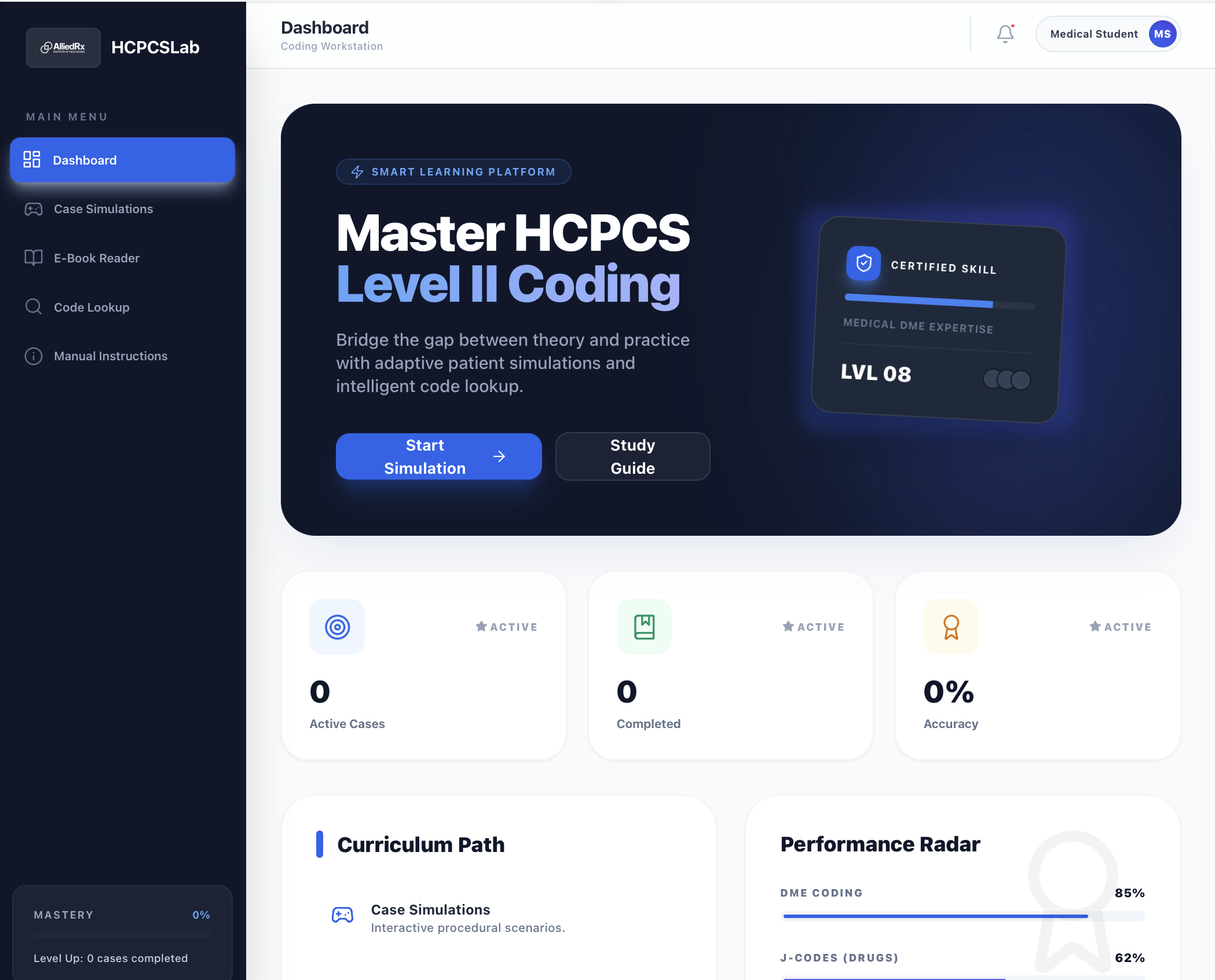


$99 Down Payment Required
Program Overview
At AlliedRx Institute of Healthcare, we offer a robust curriculum that covers all aspects of medical billing and coding. You will gain a deep understanding of medical terminology, procedure codes, and the intricacies of the healthcare industry. Our courses also introduce you to the Common Procedure Coding System (HCPCS), an essential tool used in accurately assigning procedure codes for medical services.Upon completion of our training program, you will be fully prepared to take the AAPC, NHA or AHIMA designated exams.
These comprehensive exam evaluates your knowledge and skills in medical coding, including accurately assigning procedure codes, understanding medical histories, and navigating the healthcare common procedure coding system. With our rigorous training, you'll have the confidence and expertise to excel in the exam and launch your career.The demand for skilled medical billers and coders is on the rise, making it an excellent career choice.
Medical Terminology and Anatomy: To accurately code medical procedures and diagnoses, students must have a foundational understanding of medical terminology and the human body's anatomy and physiology. This knowledge ensures that coders can understand medical records, physician notes, and other documentation to assign the correct codes.
ICD, HCPCS, CPT Coding Systems: The International Classification of Diseases (ICD) and Current Procedural Terminology (CPT) are the primary coding systems used in healthcare. Students will learn how to navigate these systems, understand code updates, and apply the appropriate codes based on the medical services provided.
Healthcare Reimbursement and Insurance: Medical billing specialists need to understand the intricacies of healthcare reimbursement processes. This includes knowledge of different insurance plans (like HMOs, PPOs, and Medicare), the claim submission process, and how to handle denied or rejected claims to ensure that healthcare providers receive appropriate compensation for their services.
Regulatory Compliance: The healthcare industry is governed by various regulations to ensure patient safety and privacy. Students will learn about the Health Insurance Portability and Accountability Act (HIPAA) and its importance in protecting patient information. They'll also be educated on the importance of accuracy and ethics in coding to avoid fraudulent claims and ensure compliance with industry standards.


Program Benefits

Learning Content
Prep Materials

Admissions Requirements

Program Approvals
Courses
This introductory course provides students with the basic principles and foundation needed to understand health insurance. Students will learn about the history of healthcare in the United States of America, concepts regarding healthcare, compare and contrast HMOs , PPOs, POS, individual and group insurance. Students will also learn about Medicare and Medicaid regulations regarding coverage for healthcare services and reimbursement. Ethical issues in the healthcare billing environment and how to prevent claim denials with accurate medical coding.
This course teaches students to identify and assign appropriate diagnosis, procedure codes and modifiers for healthcare reimbursement. Students will learn how to utilize ICD-10-CM, CPT and HCPCS to assign appropriate codes to a medical claim. Students will also learn how to apply the guidelines and importance of proper documentation for the processing of clean medical claims.The Assisting with Medical Specialties course, with a specific focus on Medical Emergencies, is designed to offer students an in-depth perspective on emergency medicine within the broader medical field. Leveraging a mix of lectures, engaging discussions, and illustrative case studies, students will delve into the particularities, responsibilities, and challenges of this critical specialty.In the context of this course, Medical Emergencies serve as a lens through which students explore the demanding and fast-paced world of emergency medicine. By the end of this course, students will have gained valuable knowledge and understanding of emergency medical procedures, as well as the skills to manage and navigate a variety of urgent and emergent situations in a healthcare setting.
Learning Modules
- Compliance, Privacy, Fraud, and Abuse in Insurance Billing
- Basics of Health Insurance
- Electronic Health Records
- The Blue Plans and Private Insurance
- Medicare
- Medicaid
- Tricare, Champva and Veterans Insurance
- Workers Compensation
- ICD-10-CM
- Current Procedural Terminology CPT Codes
- Paper and Electronic Claims
- Hospital Billing and Receiving Payments
Study Format
Student Support
Program Timeline
Program Locations
Alabama, Alaska, Arizona, Arkansas, California, Colorado, Connecticut, Delaware, Florida, Georgia, Hawaii, Idaho, Illinois, Indiana, Iowa, Kansas, Kentucky, Louisiana, Maine, Maryland, Massachusetts, Michigan, Minnesota, Mississippi, Missouri, Montana, Nebraska, Nevada, New Hampshire, New Jersey, New Mexico, New York, North Carolina, North Dakota, Ohio, Oklahoma, Oregon, Pennsylvania, Rhode Island, South Carolina, South Dakota, Tennessee, Texas, Utah, Vermont, Virginia, Washington, West Virginia, Wisconsin, and Wyoming.




